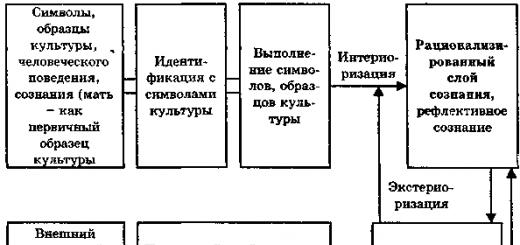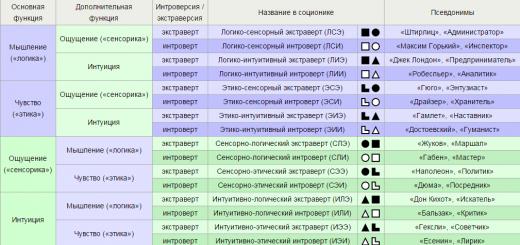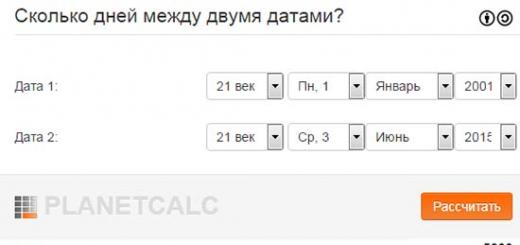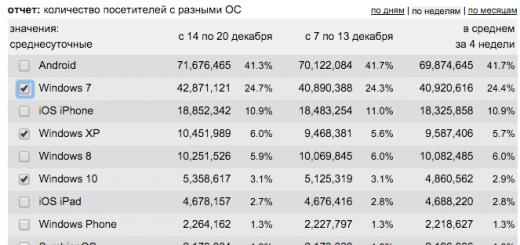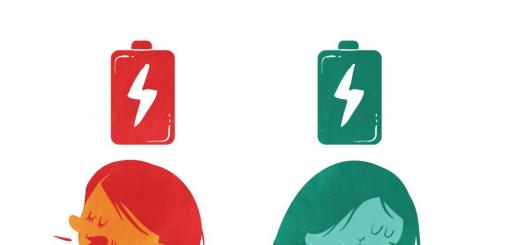Education in Cyprus is gaining popularity as a result of targeted government measures to modernize the educational system: Cyprus spends more than 7% of its GDP on education, ranking third in the European Union after Denmark and Sweden. As a result, by the beginning of 2013, the number of foreign students in Cyprus had tripled.
Despite the fact that Cyprus is a small island, the universities on it are by no means small and occupy leading positions in many international rankings.
List and ranking of Cypriot universities
The information is for informational purposes only. For exact information, refer to the official website of the educational institution.
Tuition fees and structure of education in Cyprus
| Type of training | Age | Duration | Min. price | Avg. price | Language Requirements |
|---|---|---|---|---|---|
| Summer camp | 6+ | 1-12 weeks | €400/week | €1,000/week | Beginner (A1) |
| Language schools | 6+ | 1-16 weeks | €600/week | €1,200/week, | Beginner (A1) |
| Secondary education | 6+ | 1-12 years old | €0 | €5,000/year | Intermediate (B1) |
| University preparation | 16+ | 1-2 years | €1,000/year | €2,500/year | Intermediate (B1) |
| Undergraduate | 17+ | 4 years | €5,000/year | €10,000/year | Upper Intermediate (B2) |
| Master's degree | 20+ | 2 years | €5,000/year | €6,000/year | Advanced (C1) |
| MBA | 20+ | 1-2 years | €7,000/year | €12,000/year | Advanced (C1) |
| Doctorate | 20+ | 3 years | €10,000/year | €13,500/year | Advanced (C1) |
Benefits of studying in Cyprus
- Flexible system of higher education. The process of studying in Cyprus is considered to be one of the most flexible in Europe. There are several language options for teaching here: in some universities, classes are conducted in English, and in others - in Greek or Turkish. And training can be started not from the beginning of the year, but from the second or third semester (the academic year in Cyprus usually consists of three semesters). Another advantage is that most schools and colleges adhere to the American education system, which gives students the opportunity to manage their academic load and choose the subjects that interest them. This approach can significantly reduce the cost of education, because the fewer subjects a student studies, the less he pays. Thus, students of Cypriot universities have the opportunity to fully customize the learning process for themselves.
- Summer school at the university. For students who wish to improve their grades in any subject, it is possible to retake the program during the summer holidays. Students can also shorten their study time and turn in their thesis ahead of schedule by taking additional courses to complete the program a year or six months faster. Among other things, summer schools can be attended just to learn a new subject.
- Easy admission process. In many Cypriot universities, applicants are not required to pass entrance examinations: the main criterion for admission is knowledge of the English language. In addition to the certificate, the student will only need an IELTS or TOEFL certificate. Those applicants who could not score the required number of points in the test can enroll in preparatory language courses. For students who are fluent in Greek or Turkish, there is an opportunity to take a language test and enroll in a program that does not require knowledge of English. In general, it is not difficult to enter a Cypriot university, but applicants should not relax: the learning process is not simple, and the requirements for students are quite strict.
What is worth knowing about education in Cyprus?
In Cyprus, there are no free hostels for students, as in many other European countries. At the same time, places on campus are limited, and not everyone has enough of them. Among other things, not every foreign student can afford to pay for a hostel. For example, in Nicosia, an ordinary dorm room will cost €170-500. On average, renting a separate apartment costs €400-500 per month, not counting utility costs. Many students rent together: sometimes it is cheaper than a place in a hostel.
Despite the fact that Cypriot universities participate in many international student exchange scholarship programs, grants are limited and require serious reasons. The amount of the scholarship is calculated for each student separately based on his financial situation and average living expenses. At the same time, payments usually amount to no more than a third of the cost of a year of study.
The higher education system in Cyprus
Education in Cypriot universities in English
The official languages in Cyprus are Greek and Turkish, most of the population of Cyprus also speaks English (the island was a British colony from 1915 to 1960). Recently, the number of English-language programs has been growing, which attracts foreigners to the country. With good academic performance, students of Cypriot universities after several years of study can be transferred to leading universities in Europe, the USA or the UK.The generally accepted language certificates required for admission to a university are TOEFL, IELTS and CAE. Applicants who do not have a certificate confirming their knowledge of English can take the exam on arrival directly at the university. Minimum scores required for admission: TOEFL 75-79 ibt, IELTS 6.0.
Grading system and progress control
Classes in Cypriot educational institutions usually take the form of lectures and seminars in accordance with the academic plan of a particular program. During the school year, students perform laboratory work, participate in scientific projects, attend electives and write term papers.The grading system may differ from university to university. Assessment methods include written and oral intermediate tests, as well as final examinations. Most universities in Cyprus use the A-F grading system and also follow the American GPA system - Grade Point Average(GPA). Students with a semester GPA between 3.00 and 3.49 are considered Bs, while those with 3.50 and above are considered A students.
Academic career and teaching staff
To become a lecturer, you must have a Ph.D. Ph.D. degree) and provide evidence of competence in teaching and research. This could be a resume, portfolio, or publications of the candidate. The Associate Professor position requires a PhD and at least three years of independent teaching and research work. The position of professor assumes the presence of eleven years of experience and a significant contribution to science. There are no age or nationality restrictions for candidates applying for the respective positions, and the level of monthly salary of a teacher usually varies from €2,000 to €5,000 per month.Opportunity to work while studying
Students have the right to work 6 months after their stay in the country, that is, from the second semester. With a work permit, a student can work up to 20 hours per week during the semester and up to 38 hours per week during the holidays. You can get a work permit if you apply through a university or independently to the Ministry of Labor and Social Insurance ( The Ministry of Labor and Social Insurance).In general, it is quite difficult for an international student to find a job in Cyprus. However, during the summer season there is traditionally a huge demand for temporary workers in the tourism industry with English skills. On average, students can earn €500-600 per month for part-time work.
Prospects and employment opportunities
Higher education system in Cyprus. Peculiarities. General information.
The system of higher education in Cyprus has its own characteristics. Cyprus has a European multi-stage educational model. All programs are divided into 4 levels: associative, bachelor's, master's and doctoral studies.
The first stage is designed for two years of study and ends with the issuance of a certificate / diploma of an associative degree.
The second stage - the next two years of study ends with the issuance of a bachelor's degree.
The third stage of higher education is designed for the next 2 years of study with the award of a degree and a master's degree.
In the future, students can continue their education for a doctoral degree.
Universities and colleges in Cyprus meet the highest requirements and standards and most of them are accredited in many European countries as well as the USA. Most universities have close links with many universities in the US, UK and other EU countries. This allows students to take part in exchange programs or study abroad, as well as continue their studies to improve their education.
Universities and colleges use the European Credit Transfer System (ECTS), which is recognized in all European countries and beyond.
Academic year is divided into 3 semesters - autumn (begins at the end of September-beginning of October, ends at the end of December-beginning of January), spring (begins at the end of January-beginning of February, ends at the end of May), summer semester (begins at the beginning of June, ends at mid July)
Vacation schedule - in winter during Catholic Christmas and New Year, in the spring at Easter, summer holidays, the amount of which depends on the choice of the student - whether he will take the summer semester (the summer semester is not required).
Grading system - western, which is expressed as a percentage (from 0 to 100%, a passing percentage of 60 and above), in a letter value (A, B, C, D and F (F - obstruction of the subject), as well as the international system of average assessment - GPA / CPA (from 0.0 to 4.0)
Exams- The European education system provides for a system of tests, essays, group projects. There are no tests or oral exams. In each semester, there are usually two exams in each subject - in the middle and at the end of the semester. The exception is subjects with the Final Project (thesis defense).

Higher education institutions
There are three public universities in Cyprus - The University of Cyprus (founded in 1992), The Open University of Cyprus (The Open Cyprus University of Cyprus) and The Cyprus University of Technology (founded in 2007) .
Admission to the state universities of Cyprus is possible only for citizens of Cyprus. Teaching takes place in Greek.
In addition, there are a number of private universities, institutes and colleges in Cyprus, admission to which is possible for citizens of Cyprus, the European Union and any other countries.
European University of Cyprus (EUC European University-Cyprus)
University of Cyprus Frederick (Frederick University - Cyprus)
University of Nicosia
Neapolis University
Cypriot Academy of Public Administration (Cyprus Academy of Public Administration)
Graduate School of Hospitality
Mediterranean Institute of Management (Mediterranean Institute of Management)
Cyprus International Institute of Management (Cyprus International Institute of Management) College. Alexandra (Alexander College)
Tuition and living costs
Compared to other countries, Cyprus can be classified as a country with a fairly low cost of education and living.
Payment for the year of education depends on the number of subjects / credits chosen by the student. In addition to education, you need to take into account living expenses, which also vary from choosing an apartment or hostel (which is paid in Cyprus), food, textbooks, and medical insurance.
All students are entitled to a discount in fees. The discount for the first two semesters is based on the average score of the School Certificate:
50% if average score
40% if average score
30% if the average score is lower
Further discounts are subject to review and depend on student performance.
Also, a discount is provided to students who successfully perform in the sports teams of the university.
Obtaining a visa
To obtain a student visa, you must submit a standard package of documents to the Cypriot embassy, a list of which you can get at the educational institution where you want to enroll. An approximate list of required documents is a school certificate (diploma), confirmation of tuition fees and the availability of funds for living and studying.
For citizens of Ukraine, it is also necessary to pass an interview at the Cypriot embassy in Ukraine.
Conditions for admission and required documents
Birth certificate
School certificate or diploma of graduation from a secondary - higher institution
certificate of good conduct
Certificate from the bank on the existence of an account and the amount of money in the account
All documents and certificates must be translated into English and certified.
Upon arrival at the educational institution, it is necessary to pass an English language test to determine the level of the language, medical tests - fluorography, a blood test.
Going to study in a European country is the dream of many young people who plan not only to get a good higher education, but also to see the world. However, this is a very expensive pleasure for the wallet of the parents of the future student. Many countries have special programs to help make this dream come true. And how can a Russian or a citizen of the CIS countries get a university diploma in Cyprus without spending a lot of money?
Free higher education in the country is not provided for both the Cypriots themselves and foreigners. However, it is still worth paying attention to Cypriot universities. Firstly, in Cyprus you can get a diploma for a much lower cost than in other European countries. Secondly, the country has government programs of financial assistance to foreign students, under which they can receive discounts and scholarships. Thirdly, in parallel with training, you can work, which will save parental money.
Today, there are seven major universities in Cyprus: the University of Cyprus, the Cyprus University of Technology, the Open University of Cyprus, the University of Nicosia, Frederick University, the European University of Cyprus, Paphos Neapolis University. All of them prepare under various programs of bachelors and masters.
HOW TO BECOME A STUDENT OF A CYPRUS UNIVERSITY
You must have a certificate of complete secondary education translated into English or a diploma from an equivalent educational institution in case of admission to master's programs (all documents are notarized).
A good level of English is also important (TOEFL certificates of at least 500 points or IELTS of at least 5.5). If your English is not up to par, there is an opportunity to take an intensive language course upon arrival in Cyprus. You need to collect all the necessary documents at home, send them to the university, pay a fee for reviewing documents (about 100 euros) and wait for a positive answer, since in most cases there are no entrance exams for foreigners. Training begins in September-October, but it is better to apply in advance, in April-May.
If a student is admitted to a university, then he must devote the first six months exclusively to the learning process and acquaintance with the culture of Cyprus. Only then should you start looking for a job, but it is important to know that non-EU students are not allowed to work for the first six months after entering the country, then a maximum of 20 hours a week during study and 38 hours a week during holidays. In addition, a regulation of the Department of Labor (Τμήμα Εργασίας) clearly defines the areas of possible employment.
WORK FOR A STUDENT FROM A NON-EUROPEAN COUNTRY
* In the field of trade (loaders in warehouses, laborers at gas stations);
* in the field of health and social care (caregivers in nursing homes);
* in the houses and apartments of residents (babysitting, household help);
* in some industrial sectors (workers in bakeries, feed factories, water treatment plants);
* in agriculture and the fishing industry (laborers);
* in the field of public catering (employees for the delivery of ready-made food);
* in the field of restaurant and hotel business (laborers, cleaners). Only those who study at faculties related to the hotel business are eligible to work in hotels in other positions (such work is considered paid practice);
* in some other industries (for example, assistant workers of garbage trucks, janitors, cleaners).
HOW TO OBTAIN A WORK PERMIT FOR A STUDENT
The student must have a residence and study permit in Cyprus issued by the Department of Registration and Migration. For employment contract forms, contact your local department of the Department of Labor. With the completed contract (in triplicate), signed and certified by the seal of the employer, you need to come back to the office of the Department of Labor. His staff will examine the documents provided (passport, immigration residence and study permit, course program at the educational institution and class schedule) and put a stamp that means that the student has received the right to work. Those who plan to work as domestic helpers, but do not yet have a permanent job, can also apply to the Department of Labor and obtain a special work permit, in which there is no need to fill out an employment contract.
So, the advantages of getting a higher education in Cyprus can be considered its relatively inexpensive cost, comfortable conditions for staying in a country with a wonderful climate and a friendly attitude towards foreigners, the opportunity to work in your free time, as well as a European-style diploma, which will be quoted as in your homeland, as well as in other countries.
Universities in Cyprus
University of Cyprus
(Πανεπιστήμιο Κύπρου) is the main state university. www.ucy.ac.cy.
Open University of Cyprus
(Ανοικτό Πανεπιστήμιο Κύπρου) – state.www.ouc.ac.cy.
European University of Cyprus
(European University Cyprus) - private. www.euc.ac.cy.
Frederick University
(Frederick University) - private. www.frederick.ac.cy.
Cyprus Technological University
(Τεχνολογικό Πανεπιστήμιο Κύπρου) - state. www.cut.ac.cy.
University of Nicosia
(Πανεπιστήμιο Λευκωσίας) is the largest private university in the country. www.unic.ac.cy.
Paphos University Neapolis
(Πανεπιστήμιο Νεάπολις Πάφου) - private. www.nup.ac.cy.
In today's dynamic world, young people are increasingly seeking education abroad. What prompts you to leave your usual life and move to an unfamiliar world with a foreign language and incomprehensible traditions for several years? We decided to ask Cypriots who studied in Russia and Russian-speaking students in Cyprus about this.
And what do Russians and CIS citizens studying in Cyprus say about the advantages of local vocational education?
First, it is cheaper than in other European countries. Secondly, it is often based on the American system, which gives students the opportunity to vary the workload and visiting schedule at their discretion. It is also important that after six months of stay in the country, foreign students get the right to work (though not in all areas). The island is famous for its wonderful climate and traditionally benevolent attitude towards Russians. And it is also a country with a rich historical and cultural heritage that you can join. At the same time, life here is measured and not rich in noisy nighttime entertainment, which so distract young people from the main goal - gaining knowledge. Education in the field of hotel and restaurant business and tourism is very popular among foreign students. Such specialists are trained in many educational institutions in Cyprus.
ANTONINA DYKHTA (28 YEARS)
She came from Odessa to study at the College of Tourism and Hotel Management. Antonina is already completing her four-year studies and will receive a bachelor's degree in hotel management in June. One of the obvious advantages for her: an education acquired abroad is much more valued at home. It is also important that all subjects in the college are taught in English, which Antonina speaks at a very high level (she also studies Greek). In addition, in the summer, students can do an internship in such major hotels as the Hilton, which is invaluable practical skills and the opportunity to see the hotel's work system from the inside. During the years of study, Antonina learned not touristic, but real Cyprus, and such knowledge about another country always enriches.
Another direction in getting an education is the study of the Greek language. The University of Cyprus, namely one of its divisions, the School of the Modern Greek Language, offers this educational service. Here, in the evening hours, many foreigners living and working in Cyprus receive additional education. Russians (including the author of the article) and immigrants from the CIS countries make up almost half of all students in the school.
ANNA MORARI (25)
She came to Cyprus from Chisinau and now works for Alfa Capital Holdings Limited. At the university, Anna is studying Greek, which she wants to master perfectly, because this will significantly help her in her future career. Anna really likes the teaching method. Teachers actively attract additional visual material, prepare presentations, watch Greek films with students, and listen to music. However, Anna notes that the learning process is completely built on the student's self-discipline, there is no strict control on the part of teachers.
A well-known truth says: “Everything is known in comparison!” So, the Cypriots who studied in Russia, as a big plus, note the fundamental and depth of the theoretical knowledge gained, a large number of subjects (this significantly broadens their horizons). Foreigners also note a rather rigid teaching system, and attention to discipline - all this helps young people take their studies more seriously.
On the contrary, Russian-speaking students name the liberalism of the Cypriot system of education as a positive thing, they believe that the lack of teacher control fosters self-discipline and a sense of responsibility. They also like the fact that there are not a lot of unnecessary items, knowledge is not only theoretical, but also practical.
Violetta MICHAEL
Learning is light, or How a student can move to Cyprus
On the French side
On an alien planet
I have to learn
In university.
More and more families of our compatriots send their children to receive higher education in Cyprus. Such training has a number of significant advantages and disadvantages. In addition to beaches and resort weather, this is also a measured life on an island with excellent ecology.
Higher education in Cyprus is one of the most significant areas of the country's economy, which involves thousands of students from all over the world. Universities in Cyprus meet all the requirements and standards in the field of international education. Of course, specialization in the field of hotel and restaurant business and tourism enjoys the greatest popularity. Many students do internships in Cyprus. In addition to obtaining professional skills, this is also a great way to “pull up” a foreign language, because the training takes place in English by teachers from all over Europe.
Education in Cyprus is attractive due to the relatively low cost of education and living, excellent climate and traditionally benevolent attitude towards immigrants from Russia, Ukraine, Belarus and other countries of the former USSR.
If they don't go crazy
Romans and Greeks
Composing Volumes
For the library.
Consider the procedure for admission to a university in Cyprus using the example of Intercollege (Limassol).
Terms of study
There are several study programs:
- Diploma - 2 years,
- Bachelor Degree - 4 years,
- MBA - 1-2 years.
Beginning of training, approximate deadlines for submission of documents:
- September - January - August 15
- February - May - December 15
- June - July - May 15
Main specialties:
Information systems management
Finance and Economics
Management
Marketing
Hotel management and tourism
Accounting
Banking and finance
Price:
The cost of studying in Cyprus depends on which curriculum the student chooses (MBA or Bachelor's) and at what pace the student prefers to study. Usually, you need to collect 30 study hours (credits) per year at 285 euros each, the total cost of education is about 8550 per year.
There are also additional administrative fees (for processing the application, visa, annual insurance, for using the Internet and laboratories, etc.) in the amount of about 900 euros, part of which is paid as a refundable deposit.
Entry exams:
Upon admission, only English will be checked. In the system of assessing the level of language proficiency, for example, TOEFL, the student must have scores of at least 500-550 (depending on the chosen program).
If English is at a good level, then the student will be immediately admitted to study, if not, then the first semester will need to take additional classes in English.
Enrollment procedure:
1. Before the deadline, the following documents must be submitted:
a. Application (can be downloaded from the website of the educational institution),
b. receipt of payment of the administrative fee for the consideration of documents (52 euros),
c. receipt of payment of the student visa fee (86 euros),
d. certificate from the school, necessarily with grades,
e. university diploma - if a student applies for an MBA program, it is obligatory with grades (it is necessary to clarify which subjects can be credited and not take hours for them at a Cypriot university),
f. 4-6 photos,
g. Copy of passport, valid for at least 2 years,
h. A certificate from the police that the student is clean before the law (Police certificate) must be made no more than 6 months before the submission of documents,
i. A letter from a Russian bank (bank sponsorship letter) stating that the student has a solvent sponsor who is ready to pay for tuition, accommodation and student return. The sponsor can only be the mother, father or the student himself. It is also necessary to document the relationship between the sponsor and the student.
j. Medical certificates - must be made no more than 4 months before the submission of documents:
- Blood test for AIDS,
- Blood test Syphilis,
- Tuberculosis - x-ray.
All documents must be translated (except for the application) and notarized, apostilled.
You can submit copies, because. originals will be required at the embassy/consulate when applying for a student visa.
Intercollege requires everything to be on paper, however, some schools accept scanned copies of documents via email.
2. After all the documents have been collected and the fees have been paid, the management of the educational institution decides whether the student is fit for study or not - and writes out the appropriate document indicating the conditions of study. A student may be ineligible for medical reasons or due to low grades in the past.
3. In case of a positive answer, the selection committee sends documents to the Ministry of Education for obtaining a study permit.
4. As soon as the Ministry of Education approves the student's documents, the admission committee submits the document to the Immigration Office for a student visa.
5. The student transfers an advance payment of 3200 EUR (in other educational institutions they may require payment of the entire 1st year of study).
6. As soon as the Immigration Office approves the documents and the money for studies is transferred, the day of the interview at the consulate / embassy of Cyprus is scheduled. At the interview, you must provide the following documents (originals and their certified copies):
a. certificate from the school, necessarily with grades,
b. university diploma with grades,
c. Passport valid for at least 2 years,
d. Certificate from the police that the student is clean before the law (Police certificate),
e. A letter from a Russian bank (bank sponsorship letter) stating that the student has a solvent sponsor who is ready to pay for tuition, accommodation and student return. The sponsor can only be the mother, father or the student himself. It is also necessary to document the relationship between the sponsor and the student.
f. Medical certificates:
- Blood test for AIDS,
- Blood test for hepatitis B and C,
- Blood test Syphilis,
- Tuberculosis - x-ray.
g. A copy of the letter from the educational institution about admission to study (Acceptance letter),
h. Receipt of payment of the administrative fee for the consideration of documents (52 euros),
i. Receipt of payment of the student visa fee (86 euros),
j. Receipt for the transfer of an advance payment of 3200 euros.
k. Additional documents that may be required by the Consulate/Embassy of Cyprus depending on the country.If there is no consulate / embassy of Cyprus in the country, then the visa must be issued directly in Cyprus. To do this, you need to send a package of documents to the selection committee and wait for a copy of the student visa by fax or email.
7. It must be remembered that a student has the right to enter the territory of Cyprus only on a student visa!
8. After that, you can book a ticket with an open date!
9. At the airport, you must present:
a. Receipt of payment of the administrative fee for the consideration of documents (52 euros),
b. Receipt of payment of the student visa fee (86 euros),
c. Receipt for the transfer of an advance payment of 3200 euros,
d. Cash or traveler's checks in the amount of at least 1600 euros,
e. The package of documents presented at the consulate / embassy for an interview,
f. Letter from an educational institution about admission to study (Acceptance letter),
g. Return ticket with open date,
Students who cannot presentthese documents at the airport will not be able to enter the territory of Cyprus.
10. Before the start of the academic semester, you must register. Registration closes 3-5 days before the start of classes. It is possible to register within a week after the start of classes, but in this case you will need to pay a fee of 35 euros.
11. After that, you will need to submit documents to the Immigration Office to extend your student visa and receive a pink slip.
The procedure for admission and submission of documents is almost the same in all universities, but it is advisable to always clarify all the details in advance.
Quietly splashing water
Blue ribbon.
Remember sometimes
your student
How can a student get settled in Cyprus
Of course, first of all, you will need to be puzzled by the search for housing. There are student hostels (dormitories) at universities, but the number of places in them is extremely limited. Most students who come to study from other countries prefer to rent apartments in a pool near the educational institution.
Some families prefer to buy an apartment or a house, because housing in the resort is always in price.
Due to the fact that the public transport system is still poorly developed in Cyprus, the student will most likely need a car or, in extreme cases, a scooter. Prices for used cars in Cyprus are relatively low, driving licenses issued in Russia are valid for 6 months after which they are exchanged for Cypriot ones without exams. Getting used to driving on the left is pretty easy.
Cyprus has a well-developed banking system, inexpensive international calls, high-speed Internet is widespread, so it will not be difficult for a student to keep in touch with his homeland.
Student's right to work in Cyprus
It is important to note that non-EU students are not allowed to work for the first 6 months after entering the country, then a maximum of 20 hours per week during school hours and 38 hours per week during holidays.
As The Cyprus Mail notes, whether this decision of the labor department is fair or not, however, the law unambiguously determines in which areas of the economy students from third countries can work. So, foreign students can find a job:
* in the field of trade and repair (as loaders in wholesale warehouses, laborers at gas stations and assistants at car washes),
* in the field of health and social care (caregivers in nursing homes),
* in the houses and apartments of local residents (part-time employment, cleaning and babysitting, household help),
* in some industrial sectors of the economy (as workers in bakeries, night workers in 24-hour production, in feed factories, in wastewater plants),
* in agriculture and the fishing industry (as laborers),
* in some other industries (for example, garbage truck assistants, janitors, cleaners),
* in the field of catering (employees for the delivery of ready-made food),
* in the field of restaurant and hotel business (laborers in the kitchen, cleaners),
As for the right to work in hotels, only those who study at faculties that are directly related to the hotel business have received it. From June 1 to October 15, such students are eligible to work in hotels as a paid internship.
Human rights organizations and immigrant support groups have repeatedly called on the government to expand the list of jobs that students from third countries are allowed to take. Most of the jobs on the list fall into the category of hard and low-paid work.
How to get a work permit?
* Only those third-country students who have been studying in educational institutions in Cyprus for at least six months receive the right to work.
* The student must have a residence and study permit in Cyprus (so-called student visa) issued by the Migration Department.
* For clarifications and obtaining employment contract forms, please contact your local department of labor department.
* It is necessary to fill out an employment contract in triplicate, which must be signed and stamped by the employer.
* Three copies of the contract must be submitted to the local labor department. In addition to the contract, you need to provide an identity card or passport, an immigration permit to live and study in Cyprus, as well as the course program at your educational institution and class schedule.
* Employees of the Department of Labor will study all the papers provided at their disposal, and put a stamp that will mean that the student has received the right to work. Officials will return two of the three copies of the employment contract to the student. One must be left at your disposal, the other must be given to the employer.
* Students who intend to work as domestic helpers, but do not yet have a permanent job, can apply to the Department of Labor, obtain a special form, fill it out, return it to employees, and obtain a special work permit. They do not need to fill out an employment contract.
Department of Labor Offices
Nicosia - 22-403000
Limassol - 25-827350
Paphos - 26-821658
Larnaca - 24-805312
Every year foreign education becomes more and more popular among Russians. The reasons for this interest are obvious - Western educational institutions are trying to provide an individual approach to students, they teach according to modern methods, introduce them to practical technologies and allow them to master a foreign language well. However, the cost of educational services in the US and Europe is quite high, and not every Russian family can afford such a “luxury”.
The Global Dialogue company offers an alternative option - training in Cyprus. Prices in this country are more democratic, and the quality of education can compete with European and American schools and universities. And this is not the only advantage: a good ecological environment, a mild sea climate and a very good-natured local population make studying in Cyprus not only a profitable, but also a very attractive solution.
Today, the percentage of foreign students who study in schools and universities in Cyprus is rapidly approaching 50. A very friendly multinational atmosphere has been created in the country, which every year attracts more and more people who want to study in Cyprus.
Language courses for children and adults
The official language of Cyprus is Greek, but the entire local population is fluent in English. Moreover, the Cypriots speak the correct British dialect, since in the past the country was colonized by the British. Today, there are several language schools on the island that accept foreign students throughout the year. Both adults and children can study English in Cyprus.
Language centers working with the youngest students are located in the tourist centers of the island - Larnaca and Limassol. These cities are located on the coast and boast excellent infrastructure: quality medical facilities, numerous restaurants and a developed entertainment industry for children of all ages. Accommodation for children, as a rule, is organized on the basis of 4-star hotels, which are within walking distance from the beach, and meals are provided according to the “full board” system. The cost of a weekly course, which includes 20-30 hours of English and an extensive sports and entertainment program, starts from 180 euros.
Tempting prospects also open up for adult students: the language schools in Cyprus are distinguished by modern technical equipment, and teachers work according to proven Western methods. You can study English both on the coast - in Larnaca, Limassol, Ayia Napa, and in the capital of the island - Nicosia. The price of a weekly English course for youth and adults starts from 200 euros.
Speaking about studying in Cyprus, one cannot remain silent about the opportunities for recreation. For lovers of excursions, there are many interesting historical places here - the ancient city of Paphos and the ruins of Kourion, numerous monasteries and even miraculous places. Gourmets will be able to fully enjoy the local cuisine - meze and moussaka - the size of which is legendary. And adherents of the nocturnal lifestyle will fall into the real element of noisy taverns, bars and clubs.
Higher education in Cyprus
Cyprus is considered an attractive country for higher education. There are 3 public universities and several private universities on the island, where you can study the most relevant professional areas today: international finance and banking, computer technology, industrial design, energy, etc.
However, among the most promising areas are the hotel business and tourism. Vocational training in these areas has become widespread recently, and at the same time, the demand for qualified personnel still exceeds the supply. The cost of studying these disciplines in Cyprus is much lower than in European countries. At the same time, the student gets the opportunity to study the processes and features of the hospitality industry using real examples, because Cyprus is a popular tourist resort.
Another advantage in favor of obtaining higher education in Cyprus is the conditions for admission. All private universities on the island accept students without entrance exams. It is enough just to pass an English language test (at least 500 points in TOEFL). If the student does not cope with it, he will still be enrolled, however, during the first year of study, he will have to attend additional English courses.
There is another nice feature: some educational institutions offer exchange programs that make it possible to start studying in Cyprus, and continue and finish it in Europe, the USA or New Zealand.
Finally, while studying in Cyprus, you can apply for a work visa and start your career as a student. Upon completion of the course, the student receives an international diploma and becomes a sought-after specialist in the USA and Europe.
The cost of an academic year in universities in Cyprus starts from 3,500 euros - which is about 3-4 times less than the prices for similar study programs in American or European educational institutions. Much more democratic in Cyprus and prices for food and housing. A monthly food basket will cost an average of 250 euros, and the cost of renting a 3-bed apartment starts from 750 euros per month, that is, each tenant will have to pay only 250-300 euros. By the way, all universities in Cyprus provide their students with assistance in finding affordable and high-quality housing.
If you are interested in studying in Cyprus - obtaining higher education or language courses - Global Dialog employees will give you detailed advice about the country, help you choose the best school and curriculum, and also assist in resolving all organizational issues.
Study and relax in Cyprus with Global Dialogue!
The Republic of Cyprus is a Mediterranean island state that is part of EU and actively participating in the process of European integration. In the ranking of the effectiveness of national education systems (Education Index), conducted by the Development Program UN (United Nations Development Program), Cyprus is in the top 50 countries with the best score.
In the universities of Cyprus, each of which has a European accreditation, education is based on the latest British education system.
Teaching in almost all universities is carried out in English. For students with poor knowledge of the language, there are special courses.
The main advantages of studying at universities in Cyprus:
- Possession of a diploma recognized all over the world;
- Compared to other European countries, low tuition and housing fees;
- Admission without exams;
- Opportunity to continue studies in European universities;
- The right to work while studying;
- Additional study of languages in the courses;
- Opportunity to search for a job within 1 year after graduation.
Features of universities in Cyprus
Applicants who have reached the age of 18 years or more can start the admission process.

Training starts in early September, consists of semesters:
- Main autumn (September-January);
- Spring (February-May);
- Free - summer (June-July).
Christmas holidays last about 2 weeks.
The training system consists of credit units European Credit Transfer System (ECTS). Students themselves choose whether to attend university in the summer semester.
The main thing is that by the end of the bachelor's program, the following should be recruited:
- 120 credits (credit) units (hours) in the disciplines studied;
- 6-9 hours in foreign languages.
At the end of each stage of training, exams are taken.
Stages of university education
The study programs provide for the following degrees:
- Undergraduate;
- Master's degree;
- Doctorate.
The initial program lasts 4 years, after which the student can apply for the title of bachelor.
The next step takes another 2 years. After completing the course, the student is eligible to receive a master's degree.
Students with a master's degree are eligible to apply for doctoral studies. Education in Cyprus under this program lasts 3 years and ends with the defense of a dissertation, after which the title of Doctor of Science is awarded.

Admission conditions
You can enter any of the universities in Cyprus without a preliminary examination. It is enough to provide certificates confirming knowledge of English.
These are:
- TOEFL with a score of 500 or more points;
- IELTS with an indicator of more than 5.5 points.
Cypriots and applicants from Eastern countries who speak Greek and Turkish are enrolled in the university on the basis of passing exams G.C.E. or G.C.S.E.
Unlike all other faculties with creative and medical specialties, examinations can be held.
Applicants from the Russian Federation, Ukraine and Belarus who have graduated from high school can enter a university upon reaching the age of 18. Prior to this, Cypriot universities offer 17-year-old graduates to take advantage of a special preparation program for admission ( Foundation).

List of documents
To enroll in a university in Cyprus, a foreign applicant must provide:
- Document on completed secondary education;
- Transcript with a list of subjects and the number of hours;
- Certificate confirming knowledge of the English language.
On a note! You can start the educational process from any semester. To do this, you need to present a package of documents 2-3 weeks before the start of classes.

Study visa
To enter the republic, a Russian, Ukrainian, Belarusian applicant must apply for a student visa.
After receiving an official invitation from the university, the applicant must submit the following documents to the Embassy of the country:
- Statement;
- Copy of passport;
- A document confirming the presence of a completed secondary education, and an insert with grades;
- Receipt of payment of student and administrative fees (86 and 52 euros);
- Certificate of no criminal record;
- Medical certificate;
- A letter from the bank of the country of residence (bank sponsorship letter), confirming the availability of an amount sufficient for the student's education and living on the account;
- Medical insurance.

Tuition fees in 2019
Both students from other countries and residents of the country must pay for tuition at the university. At the same time, tuition prices are 20-50% lower than in European universities, and are per year:
- Undergraduate - from 7500 euros;
- Master's degree - from 9720 euros;
- Doctorate - from 13,500 euros.
Student benefits
The possibility of free education at universities in Cyprus is not provided. Despite this, all students are eligible to qualify for support payments under the Foreign Country Technical Assistance Program ( STPP).
Payments for participants in short programs are oriented for 2-8 weeks and consider training in courses for managers and economics of the state. There is also the possibility of an internship in a government ministry or department.
The second type of payment was created for master's students and offers, upon completion of the course, additional training in the specialty "management" for 1 year at one of the local institutes.

CIIM and its partners allocate financial assistance on a competitive basis, which may cover the cost of the entire tuition. In addition, partial grants from 870 to 3500 euros are provided for students with a high level of academic achievement.
Some universities can reduce tuition fees by 30-50% for diligent and talented students.
Opportunity for internships and participation in student exchange programs
All universities in Cyprus have partner universities in Europe, Turkey and the USA. Students can apply after their second year to continue their studies in these countries.
There are also permanent student exchange programs between universities in Cyprus, Great Britain and France. Their participants can go to study for free for 6-18 months at one of the universities in these countries.
To search for a job, a university graduate is allowed to stay in the country for 1 year.
Accommodation and food options for students
The STSP is also active in helping visiting students find housing. In student dormitories (hostels) there is not enough space for everyone, so there are guest houses or rental apartments to choose from. On average, spending on living in university or rental apartments is 250-300 euros per month.

The same amount will be needed for expenses related to small household purchases and meals. Educational literature costs 400-500 euros per year.
Family students from Russia can arrange a child in Russian-speaking preschools and schools.
Work while studying
Students who are not EU citizens are not allowed to work for the first six months. Then you can earn extra money 20 hours a week during the study period and 38 hours a week during the holidays.
The best universities in the country
There are 7 universities in Cyprus, 3 of which are public, 4 are commercial. Some have branches in other cities.
| Name | Description | Location | Title in Greek | University type | Language of instruction | University website |
| Cyprus University | Created in 1989. Has 5000 students. It is considered one of the most prestigious universities in the country. The university has 8 faculties and 11 research departments. | Nicosia | Πανεπιστήμιο Κύπρου (ΠΚ) | State | Greek Turkish English | |
| Founded in 2004. The number of students reaches 3000 people. It has 6 faculties. | Limassol | Τεχνολογικό Πανεπιστήμιο Κύπρου (ΤΕ.ΠΑ.Κ) | State | Greek English | ||
| Founded in 2002, a flexible university. It has 3 faculties and about 5000 students. | Nicosia | Ανοικτό Πανεπιστήμιο Κύπρου | State | Greek English | ||
| University of Nicosia | Has been successfully operating for over 30 years. In 2002 it was accredited as a university. The number of students exceeds 11,000. | Nicosia, Limassol, Larnaca | Πανεπιστήμιο Λευκωσίας | Private | Greek English | |
| Created in 2007 on the basis of the Institute of Technology. | Nicosia, Limassol | Πανεπιστήμιο Φρειδερίκου | Private | English Greek | ||
| European University of Cyprus | Works since 1961. It originally existed as a college. In 2007, it became known as a university. Has more than 4500 students. | Nicosia | Eυρωπαϊκό Πανεπιστήμιο Κύπρου | Private | Greek English | |
| Neapolis University | One of the leading universities in the country. Works since 2007. | Pathos | Πανεπιστήμιο Νεάπολις | Private | English Greek |
